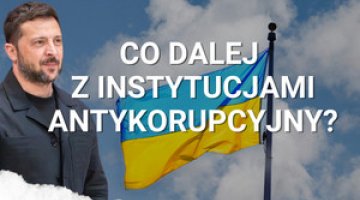The Kremlin’s policy in Ukraine – the domestic viewpoint
Opinion polls from the last several days indicate that a clear majority of Russian society supports the Kremlin’s actions taken towards Ukraine. According to WCIOM, 91% of Russians supported the annexation of Crimea to Russia and 86% sees the peninsula as being an essentially Russian territory. According to the Levada Centre, 58% of Russians accept the deployment of Russian troops in Crimea and to other regions of Ukraine (26% are opposed to it) and 54% think this move is legal. The majority of Russians perceive the deployment of troops in Ukraine as a move to protect Russians and the Russian-speaking community. On the other hand, 83% of Russians fear an open armed conflict between Russia and Ukraine.
Russia’s activity in the crisis in Ukraine has contributed to an increase in support for Vladimir Putin up to 71.6%—the highest level in the last three years. On the other hand, there are groups in Russian society which are opposed to the Kremlin’s actions towards Ukraine. This was proven by protests against the government’s policy, the largest being the Peace March in Moscow which gathered approximately 50,000 people together.
Commentary
- An unprecedented, aggressive media campaign run by the government-affiliated media has had a fundamental impact on the level of acceptance Russians have for the Kremlin’s actions towards Ukraine. On the one hand, the campaign fuels historical sentiments present in society, including the portrayal of “the handing over of Crimea as a mistake of history”. Furthermore, it discredits the revolution led by civil society on the Maidan and describes the Ukrainian government as Banderists and anarchists. The effectiveness of this propaganda is determined by the fact that the majority of society learns about the world from the traditional media and does not question its messages. Despite the fact that 60% of Russians are following the events in Ukraine, 68% of them admit that they do not really understand what is happening in that country. Nevertheless, 63% are convinced that state-owned media broadcast unbiased information about the ongoing events in Ukraine.
- Although surveys show that the majority of Russians support the annexation of Crimea, the costs which society is ready to incur in order to incorporate other regions are limited. The majority of Russians accept the deployment of Russian troops in Crimea and in other regions but they fear and oppose open armed operations which would end in bloodshed. This is linked to society’s deeply-rooted fear of war and the need for stability. The fulfilment of this need has been perceived as one of the pillars of Putin’s popularity.
- The protests against the Kremlin’s policy for Ukraine prove that there is a group of Russians who contest the government’s actions. Although they constitute a clear minority of society, they are the most active representatives of the social elite. These groups, despite pressure from the government and attempts to obstruct information channels (e.g. independent Internet-based media) retain a certain capacity for social mobilisation. However, as a result of being few in number and under pressure from the government they will not be able to influence the political agenda of the country in the near future. The support from the majority of Russians for the Russian actions taken on Ukraine and the consolidation of Putin’s position in society give the Kremlin the green light to realise its own aims with regard to Ukraine in an uncompromising manner.





